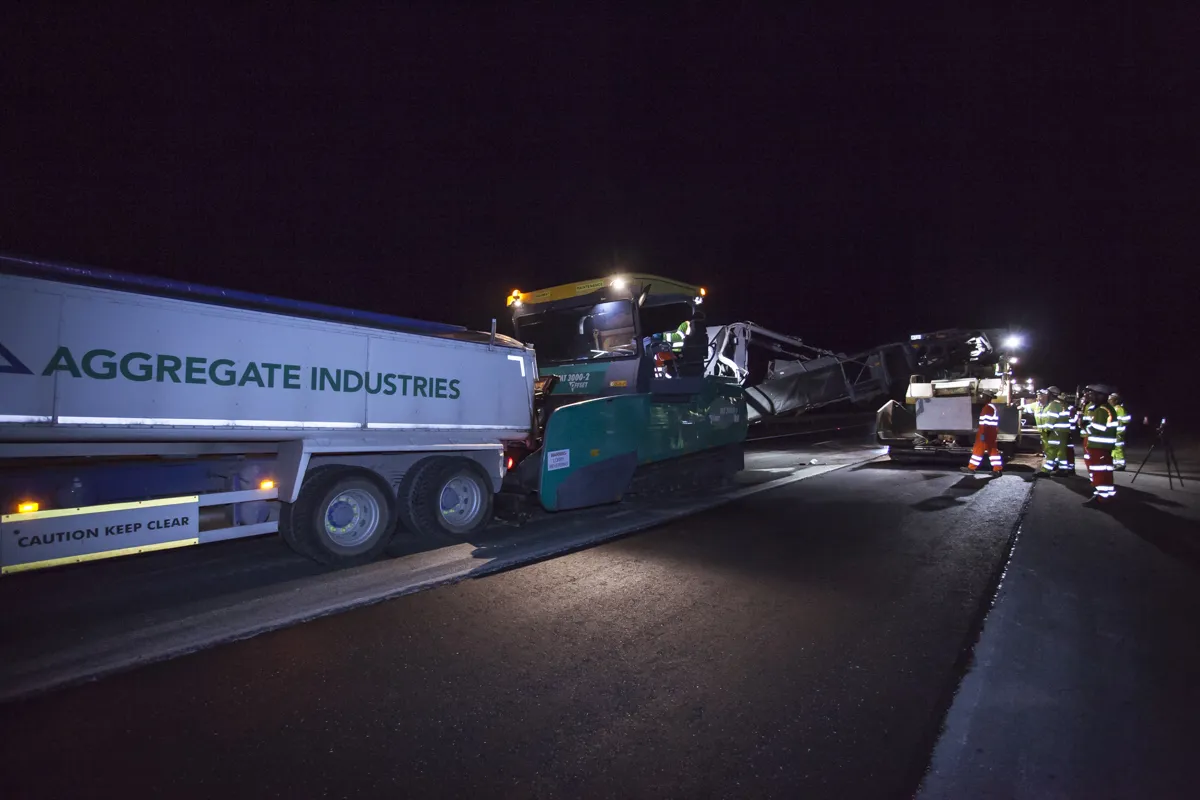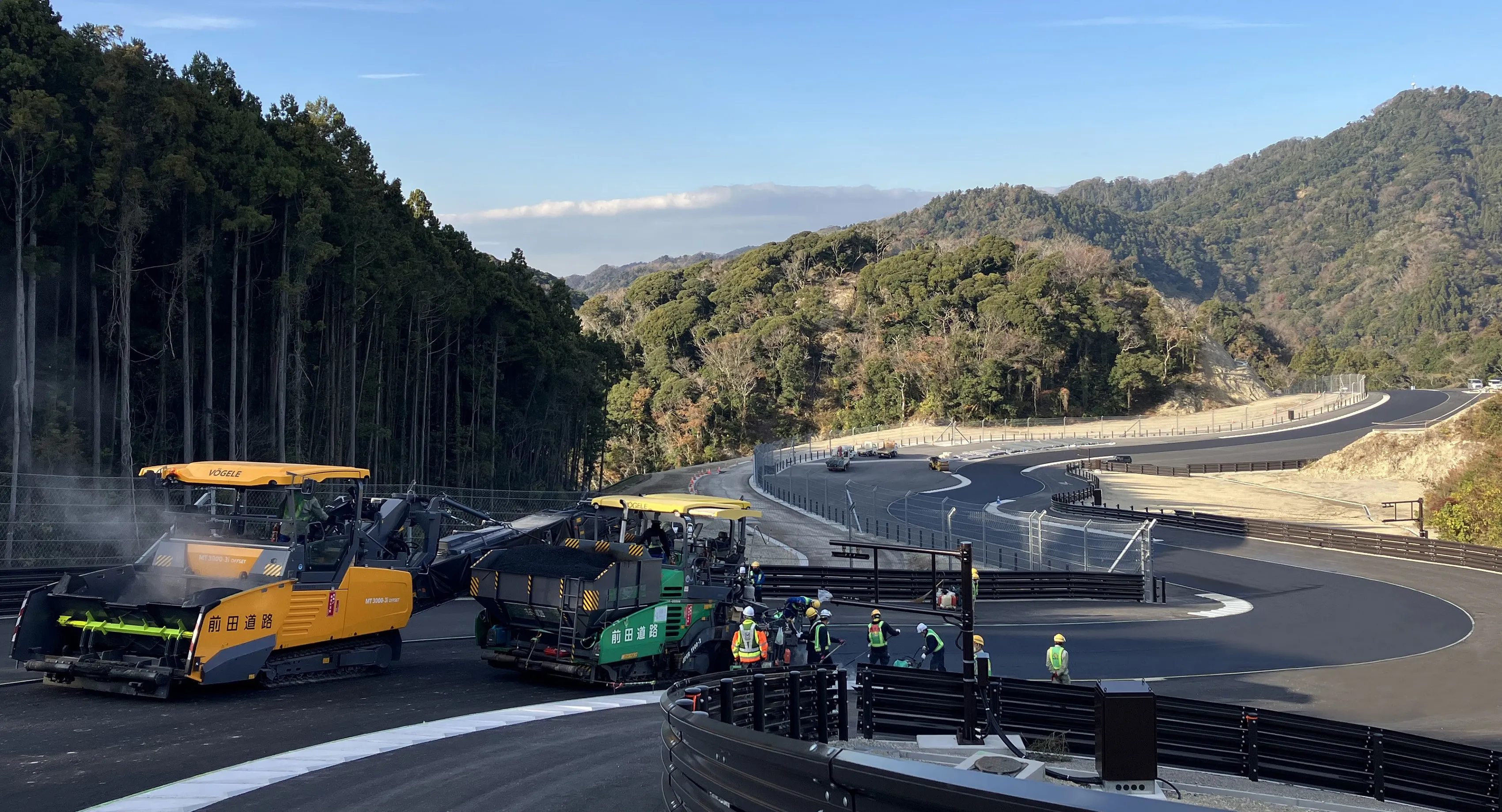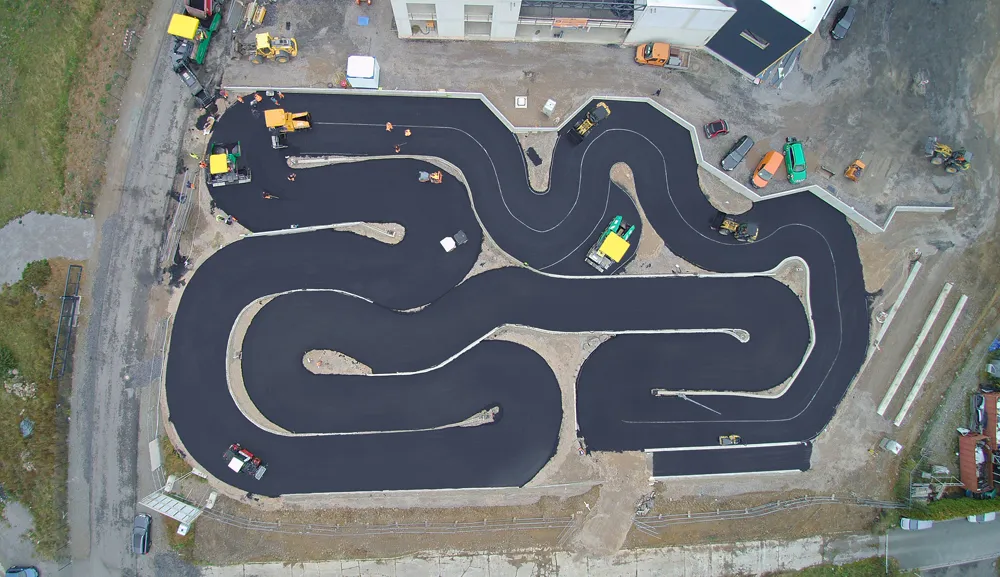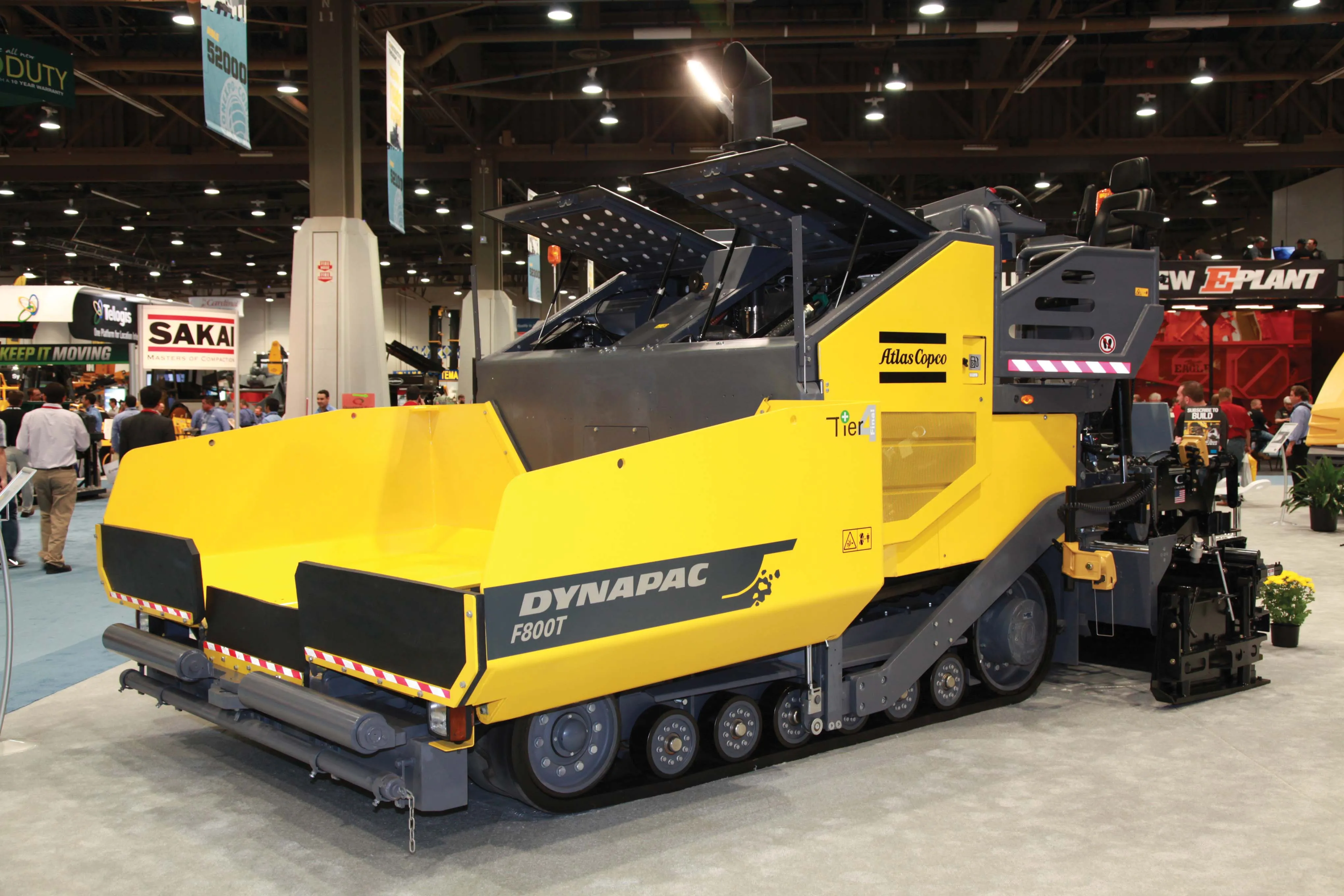UK contractor Aggregate Industries is now able to deliver smoother road surfaces thanks to the latest addition to its machine fleet. The firm is a pioneer for the use of material transfer vehicles (MTV) that allow for uninterrupted, non-contacting flow of materials into a paver. As a result, the firm says it is able to help deliver road projects more efficiently and economically. The company has acquired the latest Vögele MT 3000-2i Offset Powerfeeder. Equipped with a pivoting conveyor this machine allows t
May 9, 2017
Read time: 2 mins

UK contractor 2297 Aggregate Industries is now able to deliver smoother road surfaces thanks to the latest addition to its machine fleet.
The firm is a pioneer for the use of material transfer vehicles (MTV) that allow for uninterrupted, non-contacting flow of materials into a paver. As a result, the firm says it is able to help deliver road projects more efficiently and economically.
The company has acquired the latest1194 Vögele MT 3000-2i Offset Powerfeeder. Equipped with a pivoting conveyor this machine allows the storage and transfer of hot-mixed asphalt material from an insulated delivery vehicle to a paver for continuous paving. It can be used for hot on hot paving and to provide an increased flow of material on a traditional paving scheme. The large hopper can hold more than 16tonnes of asphalt, with a 1.1m-wide conveyor capable of transferring up to 1,200tonnes of mix/hour. This avoids issues with pavers standing idle while waiting for material. Instead it allows work to happen continuously, which in turn reduces joints in the pavement through a continuous flow of asphalt to the paver without interruption.
To date, the Vögele Powerfeeder has been utilised as part of the Area 13 Framework contract undertaken between Aggregate Industries,8100 Highways England, and Kier on the M6 Junction 36-35 S/B C/W at Burton to Cinderbarrow. The project was the UK’s first hot-on-hot in-line paving trial, which involved laying two asphalt layers: Binder Course and Surface Course simultaneously to form a fully homogenous layer. The Surface Course material was laid directly behind the Binder Course using the Vögele Powerfeeder to feed the material into the second paver. Since initial use on the M6, Aggregate Industries has used the Vögele Powerfeeder to achieve 1,396tonnes in one night on the M1 Smart Motorways scheme at Junction 33-32, and it is currently in use on the A556 Knutsford to Bowden Improvement Scheme; both in conjunction with 2319 Costain. Utilising the material transfer vehicle allows for continuous paving of the Surface Course layer resulting in an outstanding ride profile.
The firm is a pioneer for the use of material transfer vehicles (MTV) that allow for uninterrupted, non-contacting flow of materials into a paver. As a result, the firm says it is able to help deliver road projects more efficiently and economically.
The company has acquired the latest
To date, the Vögele Powerfeeder has been utilised as part of the Area 13 Framework contract undertaken between Aggregate Industries,








